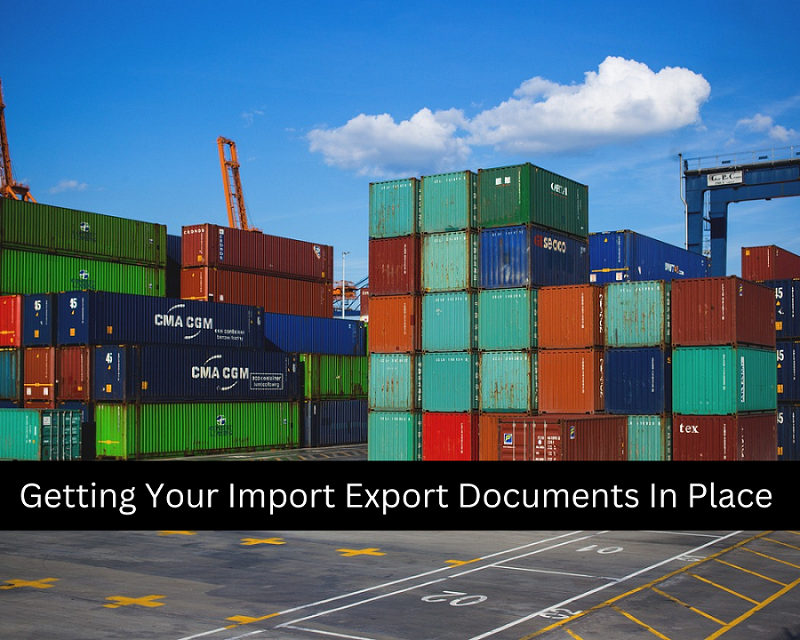Getting Your Import Export Documents In Place
Establishing a successful import-export business is a daunting task as it is full of challenges. There are a lot of hassles that you will have to deal with at every stage of growing your business.
If you are willing to start an import-export business in India, then there are a lot of things that you must take into consideration. As an export business owner, you will have to get a clear understanding of the import-export strategies, required documents, regulatory framework, etc. Securing Duty-Free Import Authorization can significantly lower costs and streamline import processes for your import-export business. You must perform all the steps involved in establishing an import-export business very carefully because even a single mistake would lead to loss and legal headaches.
Import-Export Documentation You Need to Know
The advancement of technology has made businesses very easy. But, somewhere down the line, it has brought in more excellent strategies for fraudsters and scammers too. Therefore, the legalities need to be strong enough to protect your business and customer base.
So, how can you acknowledge the authorities that you are performing a completely legitimate import-export business? The answer is by providing strong documents.
Whenever you start an import-export business, getting an IEC Code must be your priority. But, what are the documents required to start an import-export business? Let us understand everything related to it in detail.
Documents related to products
Here is the list of the documents that you will need when it comes to your export products:
- Certificate of Inspection: This is a certificate provided by the Inspection Board of India. It is approved to check the quality of the final goods.
- Seller’s Bill: This bill consists of all the necessary information about the product.
- Testament of Origin: It is a legal document that illustrates the production area of the goods. Moreover, it enables the importers to avail of tax and exemptions.
- Packing List: It is a document that depicts how many packages are there and what is present inside them.
Documents related to shipping
- Mate’s Receipt: This is a document issued by the captain. The mate’s receipt includes information regarding the date of shipment, bill of merchandise, vessel data, and many more.
- Transportation Bill: It is a document that includes all the information such as the recipient’s name, name of the exporter, address, vessel name, etc.
- Marine Insurance Policy: This policy is an agreement made between the exporter and the insurance company. It is an agreement to avail of any loss caused by the exporter due to unfortunate circumstances during the process of shipment.
- Lading Bill: It acts as proof to verify the delivery of products.
- Cart Ticket: This ticket must be collected by the exporter. It includes some necessary information like the shipping charge number, the total no. of items, and many more.
- Airway Bill: An airway bill is a document that includes important information about the products similar to the shipping bill issued by the airline company.
Documents related to payment
- Banker certificate of payment: This is a certificate that acts as proof whenever the importer makes a payment to the exporter.
- Bill of Exchange: This is a document that plays the role of a credit instrument between the importers and exporters.
- Letter of credit: This document is issued as proof by the importer’s bank as a letter to respect the bills issued by the bank of the exporter.
Other vital documents for import-export business
Some important documents do not fall under any of the categories mentioned above. So, we are mentioning them separately.
Industrial Licence
While importing a few goods, the demand for an industrial license copy arises. This license copy might be beneficial if an importer assures some imports collected under the guidelines of the Indian government. Importers must send a copy of this document to the customs authorities in order to enjoy its benefits. Obtaining an Industrial Licence may be necessary for certain companies involved in import and export, impacting the required Import Export Documents and regulatory compliance procedures.
Registration and Membership Certificate
Generating a registration and membership certificate with customs experts is very much essential for customs clearance. It is mandatory to have a registration and membership certificate along with the other customs documents needed for getting the approval.
GATT/DGFT Declaration
For exporters, it is very important to collect GATT and DGFT Reports from customs authorities and customs clearance. Even the importers need to collect the GATT records according to the terms & conditions made on the common agreement of trade & tariff.
Import License
Importers need a proper import license for the importing of various goods. This is a document that consists of all the fulfilment of the rules and regulations of imports. CFD trading in Denmark is generally allowed and regulated by the Danish Financial Supervisory Authority, holding an import license is not directly related to engaging in CFD trading activities. It is very essential to have an import license for the importing of some specific merchandise under the government rules & regulations.
Conclusion
We hope now you have a better understanding of the important documents required for an import-export business. In order to gather more information, you can connect with a consultancy. They will be able to guide you thoroughly about everything that you need to know before starting an import-export business.
Author’s Bio:
Mr. Mehul Goyal is a professional DGFT Consultant – Advance License Scheme with experience of more than 30 years and specialised in the field and is offering DGFT Consulting Services all over India. He is working with many importers and exporters even before DGFT was instigated in the markets.




